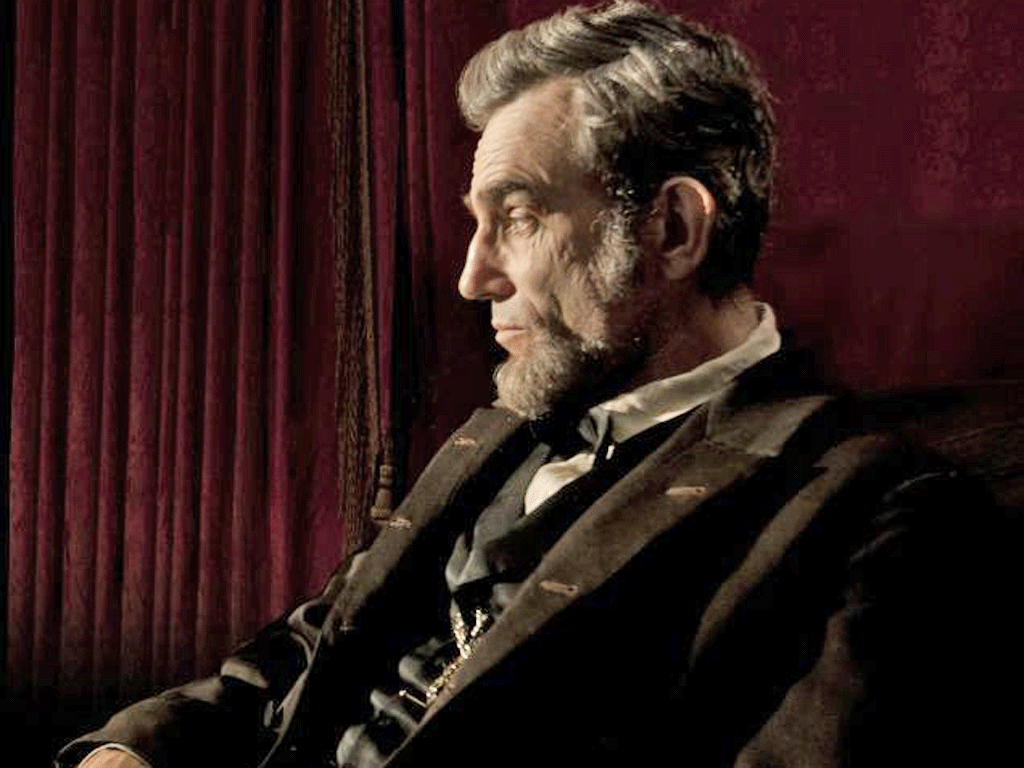If Daniel Day-Lewis can do Spielberg's Lincoln, why can't we have 'Lord Salisbury: the Musical'?
We like to think of ourselves as intensely engaged with history. If that's true, what happened to the British drama of political life? Also, the imperial legacy to gays

Two of the major hits of the year are detailed studies of US presidents. The fourth volume of Robert Caro’s life of Lyndon B Johnson, covering his subject’s violent transition into office on the assassination of John F Kennedy, has been hugely acclaimed, and is selling very well. Steven Spielberg’s Lincoln, starring Daniel Day-Lewis in a characteristically intricate and scrupulous performance, performed the remarkable feat of coming third at the US box office at Thanksgiving, after the Bond movie and the latest Twilight film.
It’s remarkable because Caro’s biography is so detailed, and because Lincoln is a perversely inward film. It’s largely concerned with committee meetings and negotiations over votes, perhaps the least Spielbergy film Spielberg has ever made. It culminates not with the assassination, but with the Congress vote for the 13th amendment abolishing slavery. It is alive to the drama of high politics, and fervent in its acknowledgement of dignified ideals as well as base manoeuvrings.
You can’t help wondering what happened to the British drama of political life. We like to think of ourselves as intensely engaged with history. But invariably the focus falls not on politicians but on royalty, into whose lives politicians come. There is something exemplary about the forthcoming film Hyde Park on the Hudson, an encounter between a US president (Bill Murray as Roosevelt, excellent) and a British king rather than another politician (the show-stealing Sam West as George VI). With the exceptions of Churchill and, interestingly, Thatcher, British prime ministers are almost invariably reduced to walk-on parts in the lives of the crown.
Why is it that a film called “Palmerston” seems inconceivable? The movie database reveals that he has only ever been portrayed in film in bit parts in movies about Queen Victoria, Edward VII and Florence Nightingale. But it might be thought that his life was not lacking in drama or political ideals. David Lloyd George has apparently not been depicted in a film since 1972’s Young Winston. Asquith, on the big screen, only once, in a silly-sounding movie about Queen Victoria called Queen of Destiny in 1938. Stanley Baldwin apparently only stood on one side and encouraged George VI not to stammer and discouraged Edward VIII from marrying Wallis Simpson.
Now, there is no requirement on film-makers to cover any particular aspect of British history. I admit, too, to being the sort of person who would see a film called “Campbell-Bannerman”, or “Lord Salisbury: The Musical”. But I can’t help feeling they are missing a trick in not engaging with the detail of political life, which should fascinate audiences. The rivalry between Gladstone and Disraeli hasn’t come to the centre of a movie since a famous one of 1941, The Prime Minister. (Gielgud played Disraeli.)
The intense tussles to pass the reform bills or Asquith’s fight with the Lords to restrict their power are simply gripping, and of rather more moment than, say, Victoria falling in love with her Scottish manservant, or George VI’s stammer.
As Lincoln has shown, the daily public and backstairs life of politicians, grappling with a large issue, can supply huge drama to appeal to a present-day audience. Where to start? I would suggest turning away from Churchill to another side of the debate. There could be nothing more powerful than the now largely forgotten figure of George Lansbury, a limp and self-regarding pacifist who led the Labour Party ineffectually until brutally ousted by Ernest Bevin at the 1935 conference. As a human drama with immense political implications, you could not do better. But British political life is full of unexploited potential.
Gays are still paying for our imperial legacy
A Bill to outlaw homosexuality in Uganda is progressing, and may become law before Christmas. Opinions differ about whether the death penalty for “aggravated homosexuality” has been removed from it – a crime which would include “repeat offending”, which would include most homosexuals. (Voltaire said: “Once, a philosopher, twice, a sodomite.”) It includes, however, a get-out clause which means that anyone claiming to be the “victim of homosexuality” would not be prosecuted for taking violent revenge, so the death penalty remains in an informal sort of way. It did for the gay activist David Cato even without benefit of this law, so his murderers can look forward to being able to extend their activities.
African politicians sometimes like to claim, like Ahmadinejad, that homosexuality has been imported from the West and they are taking a stand for their own values in encouraging people to murder homosexuals. This, of course, is total rubbish. It is anti-homosexuality that the West has exported. Of the 78 countries that maintain measures against homosexuality, 38 are in the Commonwealth. These are maintaining laws which were introduced by the British Empire – in the case of Uganda, in a law of 1950. India, in 2009, cast off a law introduced to its penal code in 1861.
The responsibilities of former colonial powers run deep. We introduced these strictures into alien cultures, where they took root and flourished. I believe it is our responsibility to try to put things right, generations later. It is our duty to offer a refuge for gay people who would face death or persecution through laws we made the template for. And it should be made clear to Uganda that aid, from us and other European governments, stops on the day this horrible legislation is passed by the Uganda parliament.

Join our commenting forum
Join thought-provoking conversations, follow other Independent readers and see their replies